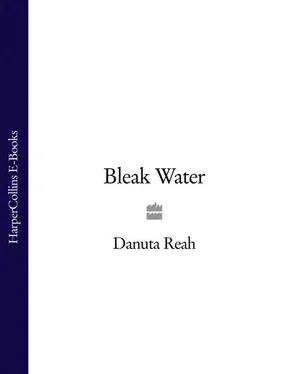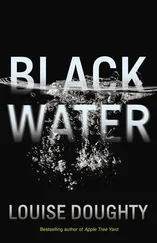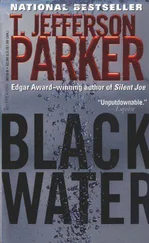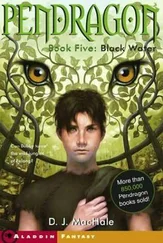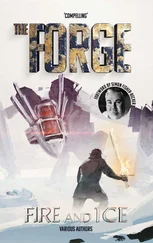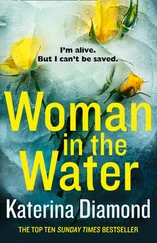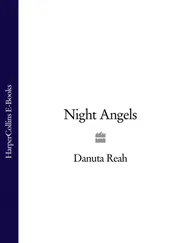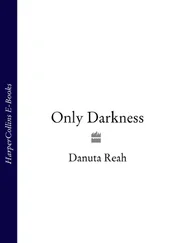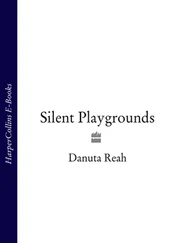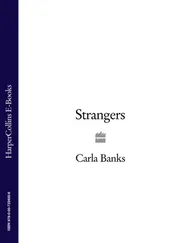
For Ken, who taught me everything I needed to know about the madness of artists
And in memory of Susan Sanderson Russell
And this is the occupation known as art, which calls for imagination, and skill, in order to discover things not seen, hiding themselves under the shadow of natural objects, and to fix them with the hand, presenting to plain sight that which does not exist.
Cennino d’Andrea Cennini, Il Libro dell’ Arte
Cover Page
Title Page Bleak Water Danuta Reah
Dedication For Ken, who taught me everything I needed to know about the madness of artists And in memory of Susan Sanderson Russell
Epigraph And this is the occupation known as art, which calls for imagination, and skill, in order to discover things not seen, hiding themselves under the shadow of natural objects, and to fix them with the hand, presenting to plain sight that which does not exist. Cennino d’Andrea Cennini, Il Libro dell’ Arte
ONE
TWO
THREE
FOUR
FIVE
SIX
SEVEN
EIGHT
NINE
TEN
ELEVEN
TWELVE
THIRTEEN
FOURTEEN
FIFTEEN
SIXTEEN
SEVENTEEN
EIGHTEEN
NINETEEN
TWENTY
Acknowledgements
Danuta Reah
By the same author
Copyright
About the Publisher
The grave seemed too narrow for what it was to contain. Eliza shivered in the wind that cut across the high cemetery. She stood with the awkward group that assembled round the burial place, noting with her artist’s eye the soil strata where the digger had cut through the frozen ground – the black of the topsoil, the yellow of the clay and down into the darkness of the grave itself.
The mound of soil around the trench was covered with artificial turf, and the grave diggers hung back against the wall, waiting for the interment to finish. The coffin was lowered and the ropes released. The minister stepped forward and said the words that the ritual required. Her voice was low, with none of the forced emotion that Eliza had heard at other funerals. This woman hadn’t known Maggie. There was no one here who had been really close to Maggie, not in the last few years. The one person who had been was already here in this burial ground.
Eliza’s gaze slid unwillingly to the dark headstone to the left of the new grave. Polished granite with gold lettering. The inlay of the lettering was fading, but the words were cut deep into the stone and would take centuries of weathering to vanish. They would last for as long as anyone who cared visited this place: Ellie Chapman, 1989–1998. Love is as strong as death is.
A man in a dark suit was watching her. He looked oddly formal among the ill-assorted band of strangers who had come to say their last goodbyes to Maggie. He’d come into the service late and was now standing to one side of the granite stone. She didn’t know him. She didn’t know any of the people who were here. Over the years, Maggie’s friends had drifted away.
The ceremony was over, and people were moving away from the graveside. Eliza looked at the flowers, all still wrapped in Cellophane that would, once the trench was filled in, be piled on the new burial. They would fade within their wrappings, the messages of sympathy would be obliterated by the weather, and, in a few days, they would be cleared away and destroyed. And then the whole episode would be over.
She found herself walking beside the man in the dark suit. She looked up at him. ‘I’m Eliza Eliot,’ she said. ‘I was at college with Maggie. We haven’t met, have we?’
‘Roy Farnham. No. I didn’t know her well.’ He seemed to realize this was a bit brief. ‘She consulted me about Fraser’s appeal,’ he said.
‘You were her solicitor?’ That would explain the suit.
He shook his head. ‘No, I’m a police officer.’
Of course. ‘Were you involved in the investigation?’ The investigation into the murder of Ellie Chapman, four years ago.
‘No, but I wrote an article about the appeals system. It ran when the news came out about Fraser. She thought I could get something done about it.’ They’d stopped now by the cemetery gate.
‘Excuse me?’ Eliza turned round. A young man was looking at her, holding a notebook. ‘I’m from the Star ,’ he said, referring to the local paper. ‘I believe you were a friend of Margaret Chapman?’
‘Maggie,’ Eliza said. ‘Yes, we were at college together.’ She looked up at the sky. It was clear and cloudless, the branches of a tree that stood beside the new grave black against the brightness of the sun. A friend of Maggie’s…How did you answer something like that, Eliza wondered. She was aware of Roy Farnham standing back slightly, watching the exchange. With professional interest?
She had seen very little of Maggie for the last four years of her life. They had been students together at the art school, they’d shared a flat, shared the first excitements and fears of independent living, but by the end of those three, vital years, they had gone their separate ways, Eliza to London to do post-graduate work, then on to work in the galleries in Florence and Rome to study the techniques of the Renaissance masters, and then to Madrid with a coveted grant to study restoration techniques at the Museo del Prado. Maggie somehow remained marooned in Sheffield with a teaching qualification and a baby to care for. They had kept in touch. Eliza had come back to England regularly and had spent time with Maggie and the baby, Ellie, who gradually transformed into a person – a forceful toddler, a lively little girl, an intelligent and thoughtful child. Eliza had liked Ellie. But over the years, other friends, other interests had intervened, and she and Maggie saw less of each other.
Their friendship had dwindled to cards at Christmas and the birthday card and present that Eliza always sent to Ellie. And Ellie always wrote back. Eliza smiled, remembering some of the letters. The last one – Raed Azile, knaht uoy rof …Eliza had done things like that at Ellie’s age. She had once written to her grandmother in hieroglyphics, prompting a rather terse response. And then Ellie had died.
‘I don’t think that Maggie ever recovered,’ Eliza said to the reporter now.
‘Did the fact that Mark Fraser is trying to get his conviction overturned contribute to Maggie’s death?’ He didn’t need to ask Eliza to expand on her earlier comment. The murder of Ellie Chapman had become a brief cause célèbre four years ago. Eliza could remember Maggie’s distraught phone call, could remember going out early in the morning to get the English papers as soon as they arrived, tuning in to the BBC. No leads in Ellie disappearance.
‘I don’t know,’ Eliza said. Maggie had campaigned to keep Fraser in jail – not that his early release seemed a likely option. And anyway, nothing would have brought Ellie back.
She exchanged platitudes with the young man though neither of them addressed the question that had hung over the ceremony and hung unspoken in the air between them. Had Maggie’s death been an accident? A car crash in which no one else was involved was the kind of polite suicide that Maggie would have committed. On the other hand, she had become erratic, absentminded and given to drinking too much. She had been drinking when she died.
‘Thank you,’ the reporter said after a while. ‘And you are…?’
Читать дальше
